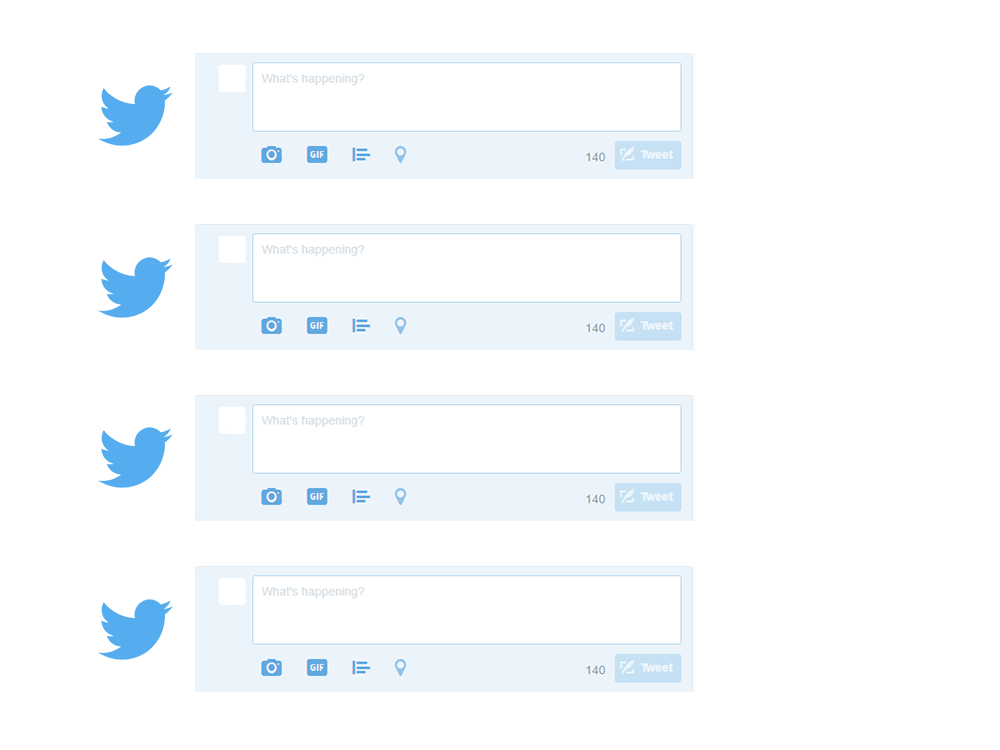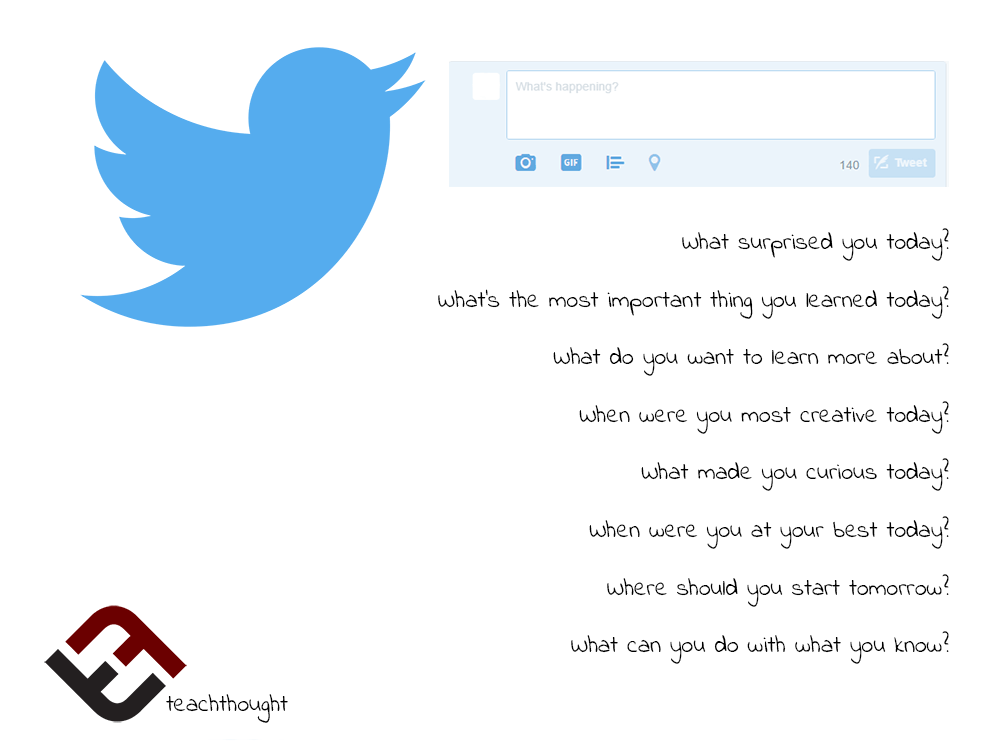What Questions Help Students Think About Their Learning?
by TeachThought Staff
What’s the big deal about thinking about something that has already happened? In our ’10 Characteristics Of A Highly-Effective Learning Environment‘, we suggested that learning habits–reflection, for example–were constantly present and modeled.
9. Learning habits are constantly modeled
Cognitive, meta-cognitive, and behavioral ‘good stuff’ is constantly modeled. Curiosity, persistence, flexibility, priority, creativity, collaboration, revision, and even the classic Habits of Mind are all great places to start. So often what students learn from those around them is less directly didactic, and more indirect and observational.
Monkey see, monkey do.
Why the brain actually benefits from reflection is a matter of neurology, but the extensive research is clear: Prediction, reflection, and metacognition are pillars for the thoughtful classroom. The questions below were created to be, as much as possible, useful with most students of most ages and grade levels with a little rewording.
Perhaps most crucially, by shifting their reflection from content to thought, students can put themselves back at the center of the learning process. When they reflect, students reimagine what happened in both 1st and 3rd person–as they were seen and as they saw through their own eyes. How? A sample response for a 7th or 8th grader might be:
I guess I was most creative today when we were given a chance to create our own metaphors for how rainforests help the planet ‘breathe.’ Why? Maybe because it forced me to think about something visually, which meant we could come up with our own answers!
In reflecting, the student had to think both about their own feelings (when they felt something) and how they might be perceived (what others might consider ‘creative’).
See Also 28 Critical Thinking Question Stems & Response Cards

8 Reflective Questions To Help Any Student Think About Their Learning
Broad Questions About Learning
1. What surprised you today, and why?
2. What’s the most important thing you learned today? Why do you think so?
3. What do you want to learn more about, and why?
4. When were you the most creative, and why do you think that is?
5. What made you curious today? How does learning feel different when you’re curious?
6. When were you at your best today, and why?
7. (Assuming we were studying the same thing and you could decide and have access to anything), where would you start tomorrow? Why?
8. What can/should you do with what you know?
The Twitter Template
We’ve included a Twitter template that you can use, or use as a guide to create your own, so students can write the answers as if they were tweets, but it’s obviously not necessary. Alternatively, students could actually tweet them (assuming they have accounts they don’t mind publishing academic content in, as well as smartphones, access to WiFi, and so on).
You could also use the questions as journal prompts or as discussion questions as well.

